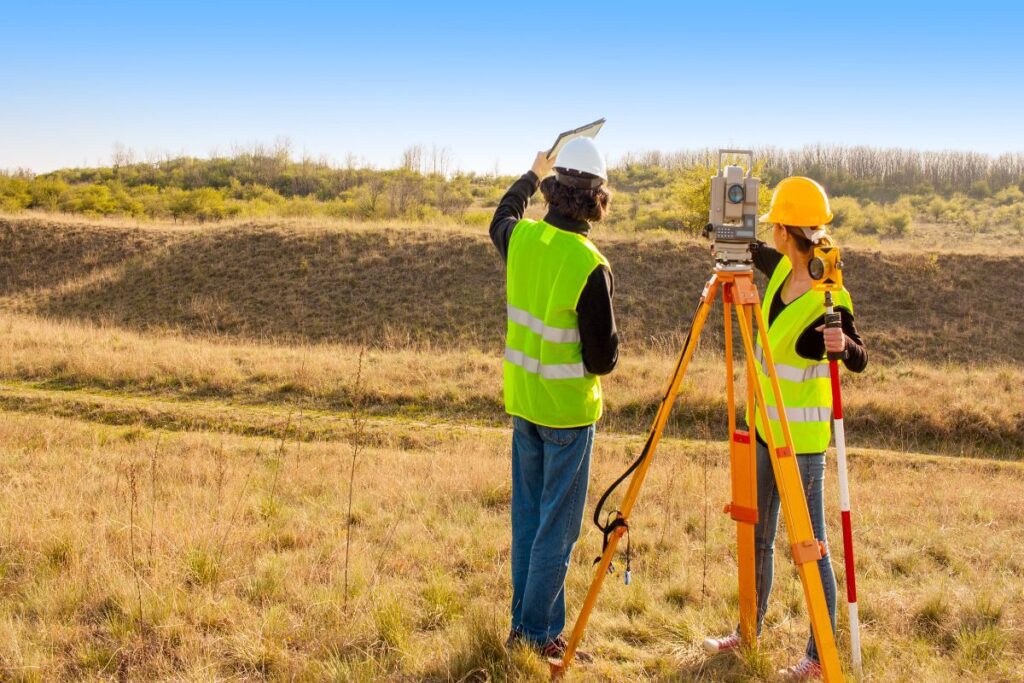The Texas Board of Professional Engineers and Land Surveyors (PELS) licenses and regulates different types of professional engineers and land surveyors. These professionals can face disciplinary proceedings concerning their licenses if PELS receives complaints against them and finds that they have violated the rules or laws that apply to them. Since the repercussions of these proceedings can be severe, contacting an experienced Texas land surveyor license defense lawyer should be your first step if you receive notice of a complaint against you.
The Complaint and Investigation Process
When anyone submits a complaint to PELS about a land surveyor, a PELS investigator reviews the complaint for jurisdiction, completeness, and evidence of violating an applicable rule or law. Various PELS staff members then review the complaint independently as needed:
- A Supervising Investigator (SI) or Investigator reviews a complaint for completeness and jurisdiction through an investigation that involves gathering information and interacting with parties involved in the events that led to the complaint.
- The Investigator drafts a summary of the complaint and recommendation as to the disposition of the complaint, which can include a recommendation for dismissal or discipline and potential sanctions.
- The complaint and recommendation then go for independent review by different PELS staff members, as needed, including the following:
- Staff Attorney (SA);
- Director of Compliance & Enforcement (DC&E);
- Deputy Executive Director (DED);
- and Executive Director (ED).
- PELS may notify the licensee of the complaint at any point during the investigative process.
Disposition Upon Completion of the Investigation
Upon the completion of the investigation, the ED may recommend dismissal or refer the case for further action.
Dismissal
If the ED recommends dismissing the complaint, PELS staff notifies the complaining party and permits them to provide any additional information within 30 days that might impact PELS’ decision to dismiss. If the complaining party provides no further information, PELS will dismiss the complaint and notify both the complaining party and the licensee.
If the complaining party provides additional information, the complaint will be returned to the investigator for review and recommendations. The complaint and new investigative findings will go through the independent review process by PELS staff again.
Recommendation for Further Action
If the ED refers the case for further action, PELS notifies the licensee of the complaint, its source, and the potential violation(s) of the law(s) or rule(s) allegedly violated. PELS also requests a rebuttal to the complaint, which the licensee typically must provide within three weeks of the request.
Upon receipt of the licensee’s response to the complaint, the investigator performs an additional review and either recommends the dismissal of the complaint or identifies violations that should result in sanctions. PELS staff members once again review the investigator’s recommendations. If the recommendations include a proposed sanction, DC&E recommends an administrative penalty and a justification for the penalty amount. Finally, the DED and ED review the recommendations of other PELS staff members.
At this stage of the proceedings, the ED has the ultimate authority to dismiss or pursue disciplinary sanctions against the licensee.
Disciplinary Proceedings
In some cases, the ED may decide that the licensee’s violations warrant the issuance of a reprimand, a cease-and-desist order, an administrative penalty, a restitution order, or another appropriate sanction. If so, PELS will notify the licensee of its findings, along with a Consent Order for them to sign.
The licensee has the option of signing or not signing the Consent Order. If the licensee signs it, agreeing to whatever sanctions PELS proposes, then PELS will review it and either approve or deny it at their next quarterly meeting. However, if the licensee declines to sign the Consent Order, PELS can proceed with further disciplinary proceedings necessary to impose a sanction without the licensee’s consent.
Under Tex. Occ. Code §1071.4035, the next step is for the licensee to request a meeting with the Informal Conference Committee (ICC); otherwise, PELS will refer the case to the State Office of Administrative Hearings (SOAH) for an administrative hearing. The ICC consists of a PELS staff member, the ED, and either the SA or a representative from the Attorney General’s office. Following this informal case conference, the ICC could recommend further investigation, which restores the case to a prior stage of the process described above or dismiss the complaint if the evidence is insufficient to establish a violation or another appropriate reason. Otherwise, the ICC could recommend a sanction and offer an Agreed Board Order to the licensee, similar to a Consent Order, in that if the licensee accepts and signs the Agreed Board Order, PELS will consider whether to accept or reject it at its next quarterly board meeting.
Administrative Hearings at SOAH
If the licensee refuses to sign the Agreed Board Order, PELS will refer the case to SOAH, which will appoint an Administrative Law Judge (ALJ) to hear the case. After hearing evidence from PELS and the licensee, the ALJ will submit findings, recommendations, and a proposed order to PELS for approval, modification, or denial. PELS will determine whether to adopt, modify, or reject the order and then notify the licensee of the outcome, including any sanctions it has assessed.
Potential Sanctions in Disciplinary Proceedings
Under 22 Tex. Admin. Code §139.31, the available sanctions that PELS can assess against professional land surveyors who violate board rules or laws may include the following:
- Revocation of a license or registration;
- Suspension of a license or registration;
- Probation of a suspended license or registration;
- Refusal to renew a license or registration;
- Issuance of a formal or informal reprimand;
- Cease and desist order;
- Voluntary compliance agreement;
- Emergency suspension; or
- Assessment of an administrative penalty.
22 Tex. Admin. Code §139.357 provides that all administrative penalties must be a minimum of $100 and a maximum of $1,500 per violation. Each day a violation continues or occurs is a separate violation. Furthermore, PELS determines the severity of disciplinary actions and sanctions based on the following factors:
- The seriousness of the violation, including the nature, circumstances, extent, and gravity of the prohibited act and the hazard or potential hazard created to the health, safety, or economic welfare of the public;
- The history of prior violations of the respondent;
- The severity of the penalty necessary to deter future violations;
- Efforts or resistance to efforts to correct the violations;
- The economic harm to property or the environment caused by the violation; and
- Any other matters impacting justice and public welfare, including any economic benefit gained through the violations
Defend Yourself Against Disciplinary Proceedings Involving Your Land Surveyor License
Don’t allow an isolated complaint to wreak havoc on your career. Losing your land surveyor license can be highly detrimental to your livelihood. If you are facing the loss of your land surveyor license, we can help you take the steps necessary to challenge the allegations against you in your disciplinary proceedings. Contact a land surveyor license defense attorney at Bertolino LLP, for advice today. Make an appointment by calling (512) 515-9518 or contact us online to see how we can help.
Call or text (512) 476-5757 or complete a Case Evaluation form






